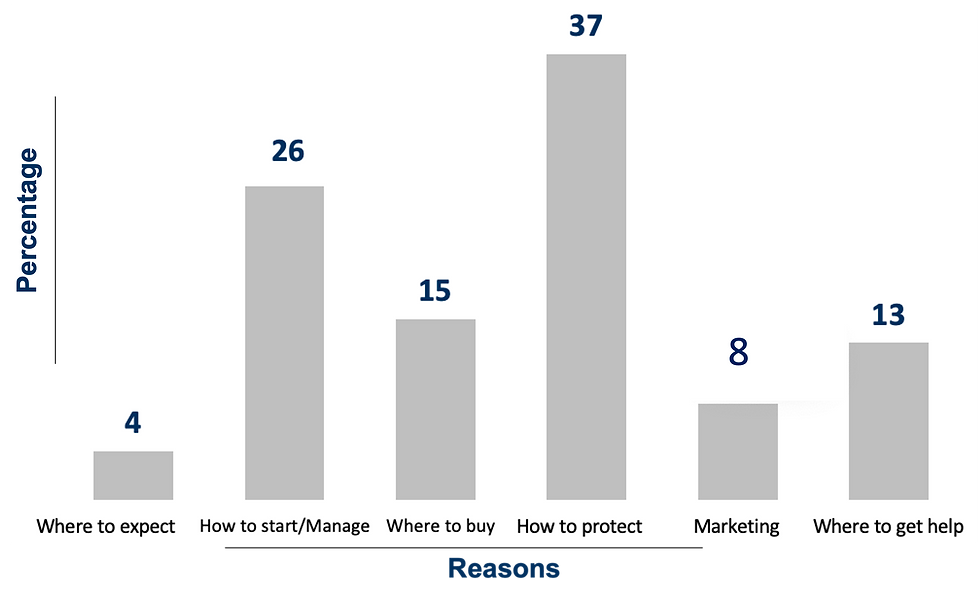CTO Talks: Towards Integrated Data-Driven Crop Value Transformation by Dr. Denis Pastory
- admin396852
- Nov 22, 2022
- 3 min read
Updated: Jun 4, 2025
Dr. Denis Pastory delivered a keynote speech at the AI4D Lab workshop with the theme “Enhancing AI for Africa’s Sustainable Development”. He addressed attendees on how to move “Towards Integrated Data-driven Crop Value Transformation”
During this speech I highlighted the burden of 77 million households who rely on agriculture in Sub-Saharan Africa"
Dr. Denis recalls his experience from the address before more than 200 scientists, policymakers, investors, and industry experts who gathered at the University of Dodoma.
Why it matters
He pointed out that only 13% of the 77 million households use digital agricultural solutions.
"It clearly shows the need to take efforts to realise an increase in crop production. Small-scale farmer's challenges have been in existence for decades - Low quality and insufficient input, low usage of improved seeds & fertilisers, poor agricultural practices, poor harvest, and poor market infrastructure", he added.
"The challenges have impacted the crop value-chain efficiencies. For instance, in Tanzania alone, only 22% of farmers purchase and use additional inputs, and 21.4% have access to fertiliser during the growing season, see the FSDT 2017 report".
Dr. Denis argues that to increase crop value efficiencies, it is critical to increase the accessibility of agricultural inputs, increase the distribution channels with reliable markets for crop production, enforce ways that support reasonable prices, and ensure that these inputs are available on time.
Integrated, Data-driven
Dr. Denis further talked about the fourth industrial revolution that has led to many technological advancements that have had a significant impact on agricultural production.
"Citing examples, farmers are increasingly using advanced technologies to gather and process data to deliver economic and environmental insights and increase farm performance". Dr. Denis elaborated on how other sectors have utilised data-driven decisions; "seeing the same implementation in agriculture would increase crop value. It’s therefore critical to integrate data-driven practices in agriculture", he said.
Dr. Denis used an example from Kenya, where the M-Kilimo helpline was used to get farmers' queries via an agriculture mobile value-added service. Within a couple of years, data showed that farmers were more concerned about “how to protect” their crops from harsh weather, diseases, pests, and other environmental factors.

One key take away from this report was that introducing data-driven decisions through crop production provides mitigation measures in expected weather changes.
Later, he shared a report done by BCG Analysis, showing how data is transforming the way growers operate ranging from season planning, input considerations, pre-planting, planting, crop evaluation and treatment, and harvest & postharvest. (See figure below)

Integrated Digital Agriculture Value Chain
For a country or region to boost the crop value chain, Dr. Denis recommended an integrated digital agriculture value chain, such as the index being built by his team at the Vision 2030 Fund.
He introduced a framework that identifies innovation-dependent spheres in any agriculture value chain, then helps stakeholders to make operations decisions.
"Suppliers could provide agriculture inputs while simplifying smart farmer access to scale economies - machinery, networks, financing options, infrastructure, security."
"Supply chain managers could ensure with pin-point accuracy that quality and quantity targets are met, and that their harvests are shipped to value-addition sites, pre-processing units, and ultimately to world markets with well-defined pricing that makes the entire venture worthwhile to small-scale farmers".
He emphasised the importance of advisory and extension services, pointing out that they should have a stronger role in the next generation of small holder farming.
"The focus of advisory and extension is to provide real-time Good Agricultural Practice Monitoring, Real-time Production Estimation, and a Risk and Monitor Framework embedded with agri-insurance, climate/weather, disease/pest, and market accessibility".
"Another major barrier for small-scale farmers is the lack of financial services. When financial services are easily reached through mobile network operators, the agriculture value chain is boosted further".

"For an integrated data-driven crop value chain to accelerate, it’s essential to understand a country's digital and data maturity level broken down as basic investment, digital inflection, and moderate and robust scaling level".
"The goal of an integrated data-driven crop value as a digital solution or service can take the shape of an advisory service that accelerates market and financial services as shown and elaborated in this figure".


Dr. Denis Pastory Rubanga is an applied data scientist, data strategist, and Innovation Technology Consultant passionate about helping leaders (C-Level, Executives, Managers, and Business Strategists) integrate data-driven technology and strategy into their businesses and organisations.


Comments